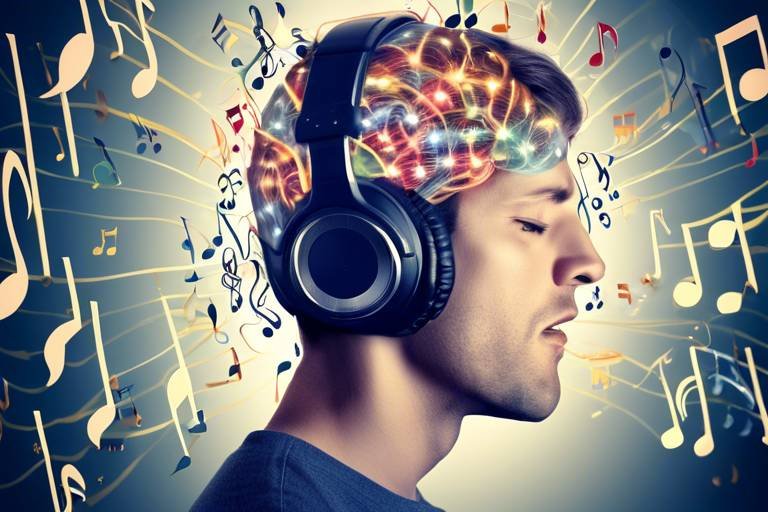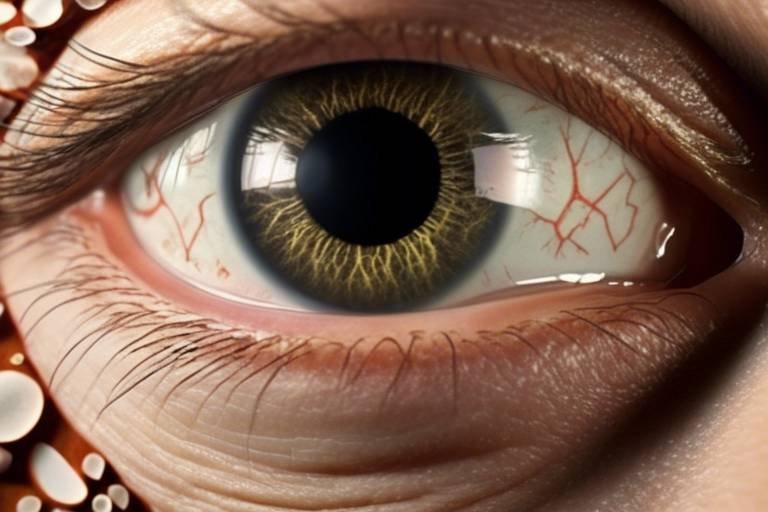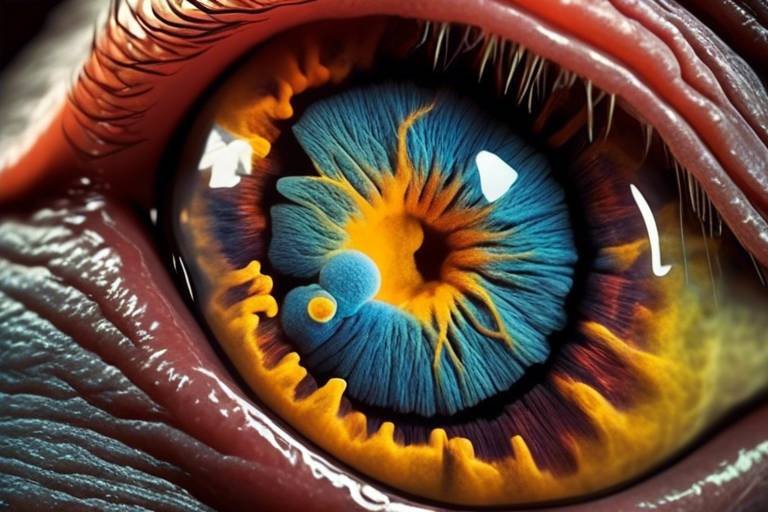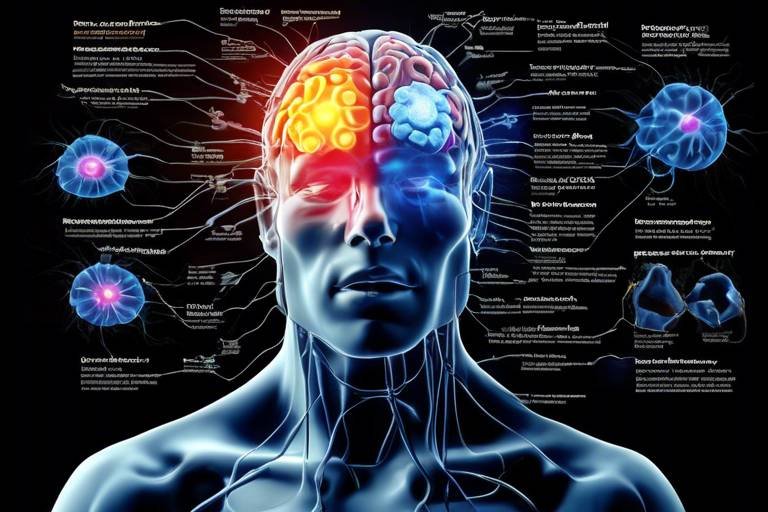How Music Affects Our Brain - The Science of Sound
Have you ever found yourself humming a catchy tune or feeling a wave of nostalgia when a certain song plays? Music is not just a form of entertainment; it’s a powerful catalyst for emotional and cognitive experiences that can shape our very existence. From the moment we hear a melody, our brains spring into action, processing sounds in ways that can evoke deep feelings, enhance our memory, and even improve our mental health. In this article, we will explore the profound impact of music on the brain, diving into how it interacts with our emotions, cognition, and overall mental well-being, all backed by scientific research.
Understanding how music interacts with the brain's neural pathways reveals its complex influence on emotions and cognition. When we listen to music, various areas of the brain light up, including the auditory cortex, which processes sound, and the limbic system, which is responsible for emotions. This intricate dance of neural activity showcases the brain's remarkable ability to process and respond to musical stimuli. Imagine your brain as a symphony orchestra, where each instrument plays a vital role in creating a harmonious experience. The interplay between different brain regions allows us to feel joy, sadness, and everything in between, all through the power of sound.
Music has the power to evoke a wide range of emotions, from joy to sadness. Have you ever noticed how a particular song can make you feel like dancing or bring tears to your eyes? This emotional resonance is not just a coincidence; it's rooted in the way our brains are wired. When we listen to music, our brains release neurotransmitters like dopamine, which are often referred to as the "feel-good" chemicals. This release can lead to feelings of pleasure and reward, making music a universal language that transcends barriers. The significance of these emotional responses extends into our daily lives, influencing our mood, social interactions, and even our decision-making processes.
Research indicates that music can enhance memory retention and recall. Have you ever found yourself remembering the lyrics of a song you haven't heard in years? This phenomenon occurs because melodies and rhythms can trigger memories, making them easier to access. The connection between music and memory is so strong that music is often used as a tool in educational settings to help students learn new concepts. In therapeutic contexts, music can aid in recalling memories for individuals with cognitive impairments, showcasing its potential as a powerful tool for learning and therapy.
Music therapy utilizes the emotional and cognitive benefits of music to aid in healing and rehabilitation. This innovative approach is not just about listening to music; it involves actively engaging with it to promote emotional well-being and cognitive function. For instance, patients recovering from surgery may listen to calming music to alleviate pain and anxiety, while individuals with mental health disorders might participate in songwriting or group music sessions to foster social connections and emotional expression. The applications of music therapy are vast, extending to various medical and psychological contexts, proving that music is indeed a universal healer.
Real-world examples illustrate the effectiveness of music therapy in treating conditions like PTSD, depression, and dementia. For instance, studies have shown that veterans suffering from PTSD can experience significant reductions in symptoms through music therapy, helping them process traumatic memories in a safe and supportive environment. Similarly, individuals with dementia often respond positively to familiar songs, which can spark memories and improve their mood. These case studies demonstrate that music therapy is not just a trend; it is a powerful therapeutic tool that can transform lives.
Studies show that engaging with music can improve cognitive functions such as attention, problem-solving, and creativity. Think about it: when you learn to play an instrument, you’re not just mastering notes; you're enhancing your brain's ability to process information and think critically. Musical training has been linked to improved academic performance, as it encourages discipline and enhances memory skills. Furthermore, exposure to music can foster creativity, allowing individuals to think outside the box and approach problems from different angles.
Rhythm and beat play crucial roles in how we perceive and respond to music. They are the heartbeat of a song, guiding our movements and emotions. When we hear a steady beat, our brain synchronizes with it, often leading to physical responses such as tapping our feet or dancing. This synchronization is not just a fun pastime; it can enhance coordination and promote physical activity, benefiting both mental and physical health. The rhythmic patterns in music can stimulate brain activity, making us feel more energized and engaged.
The relationship between rhythm and physical movement is explored here, emphasizing how music can enhance coordination and promote physical activity. Just think about how a great song can make you want to get up and dance! This natural inclination to move is rooted in our biology, as music can activate the motor areas of the brain, facilitating movement and improving coordination. Engaging with music through dance or exercise not only boosts our mood but also enhances our physical health, creating a win-win scenario.
Music transcends cultural boundaries, affecting brain function and emotional responses differently across societies. Each culture has its unique musical traditions, which shape how individuals experience and interpret music. For instance, the rhythms and melodies of African drumming can evoke feelings of community and celebration, while the serene sounds of Japanese koto music may promote relaxation and introspection. This subsection examines how cultural context shapes our musical experiences and perceptions, highlighting the rich tapestry of sound that unites us all.
- How does music therapy work? Music therapy involves using music to address emotional, cognitive, and social needs, often through activities like songwriting, listening, and performing.
- Can music improve my mood? Yes! Listening to music can trigger the release of dopamine, improving mood and providing a sense of pleasure.
- Is there a link between music and intelligence? Research suggests that musical training can enhance cognitive skills, potentially leading to improved academic performance.
- How does rhythm affect our brain? Rhythm engages the brain's motor areas, promoting movement and enhancing coordination, which can be beneficial for physical health.

The Neuroscience of Music
Understanding how music interacts with the brain's neural pathways reveals its complex influence on emotions and cognition, showcasing the brain's remarkable ability to process and respond to musical stimuli. When you listen to your favorite song, a symphony of activity occurs in your brain, lighting up various regions responsible for processing sound, emotion, and memory. It's almost as if music acts as a key, unlocking different chambers of our minds, each filled with memories, feelings, and thoughts.
At the core of this interaction is the auditory cortex, which is responsible for interpreting sounds. But that's just the beginning! Music also engages the limbic system, the emotional heart of our brain, which explains why a simple melody can bring tears to our eyes or make us want to dance. The prefrontal cortex, known for decision-making and social behavior, also gets in on the action, allowing us to analyze and appreciate the complexity of musical structures.
Research has shown that when we listen to music, our brains release dopamine, a neurotransmitter associated with pleasure and reward. This is why you might feel a rush of joy when that perfect song comes on. Our brains are wired to respond to music in a way that can enhance our mood and even motivate us to take action. Imagine your brain as a well-tuned orchestra, where each section plays a critical role in creating a harmonious experience.
Moreover, the effects of music on the brain can vary significantly depending on several factors, including personal preferences, cultural background, and even the context in which the music is heard. For instance, a study might find that classical music can enhance concentration in one group of people, while another group might find rock music more stimulating for creativity. This variability highlights the personalized nature of our musical experiences.
To illustrate the various brain regions activated by music, consider the following table:
| Brain Region | Function |
|---|---|
| Auditory Cortex | Processes sound and music |
| Limbic System | Regulates emotions |
| Prefrontal Cortex | Involved in decision-making and social behavior |
| Cerebellum | Coordinates movement and rhythm |
This intricate web of interactions shows that music is not just a passive experience; it actively shapes our thoughts, feelings, and even our physical responses. Whether you're tapping your foot to a catchy tune or lost in the melancholy notes of a ballad, your brain is hard at work, weaving together a rich tapestry of auditory experiences that resonate deeply within you.
In conclusion, the neuroscience of music reveals a fascinating landscape where sound meets emotion and cognition. As we continue to explore this field, we uncover more about how music can enhance our lives, making it not just a form of entertainment but a vital part of our mental and emotional well-being.

Emotional Responses to Music
Music is an extraordinary force that has the ability to touch our hearts and stir our souls. Have you ever found yourself tapping your feet to an upbeat song or feeling a wave of nostalgia wash over you when you hear a particular melody? This phenomenon is not just a coincidence; it is rooted in the intricate workings of our brain. When we listen to music, our brain releases a cocktail of neurotransmitters, including dopamine, which is often referred to as the "feel-good" hormone. This release can lead to feelings of happiness, excitement, or even sadness, depending on the music we choose to engage with.
But why does music evoke such a wide range of emotions? The answer lies in the way our brains are wired. Different musical elements—like melody, harmony, and rhythm—can trigger distinct emotional responses. For instance, a slow, minor key piece might make us feel reflective or melancholic, while a fast, major key tune can uplift our spirits. This emotional response is not just subjective; studies have shown that these reactions are consistent across different individuals, suggesting a universal connection between music and emotion.
Moreover, music often serves as a powerful medium for expressing and processing emotions. Think about it: how many times have you turned to a song to help you through a tough day or to celebrate a joyous occasion? This is because music acts as a form of emotional language. It allows us to articulate feelings that might be difficult to express in words. For many, certain songs become anthems of their life experiences, encapsulating moments of love, loss, and everything in between.
Interestingly, the emotional impact of music can also vary based on context. For example, listening to a poignant ballad at a wedding can evoke feelings of love and happiness, while the same song played at a funeral might stir feelings of sorrow. This highlights the significance of context and personal experience in shaping our emotional responses to music. It's as if each note carries a story, waiting to resonate with our individual experiences.
In addition to personal context, cultural influences play a significant role in how we respond to music. Different cultures have unique musical traditions that can evoke specific emotions. For instance, traditional African drumming might inspire feelings of community and celebration, while Western classical music may evoke a sense of grandeur or introspection. The interplay between culture and music creates a rich tapestry of emotional responses that varies from one society to another.
To summarize, the emotional responses we have to music are a complex interplay of neurological, psychological, and cultural factors. Music not only reflects our feelings but also shapes them, providing a soundtrack to our lives. Whether it makes us dance, cry, or reminisce, the profound impact of music on our emotions is undeniable.
- Why do certain songs make us feel nostalgic? Nostalgia often arises from the association of specific songs with past experiences. The brain links the music with memories, triggering emotional responses.
- Can music help improve mood? Absolutely! Listening to uplifting music can release dopamine and enhance mood. It's a natural way to boost your spirits.
- Does everyone respond to music the same way? Not necessarily. While many emotional responses to music are universal, personal experiences and cultural backgrounds significantly influence how we perceive and react to different pieces.

Music and Memory
Have you ever heard a song that instantly transported you back to a specific moment in time? That’s the incredible power of music and its deep connection to memory. Research shows that music can significantly enhance memory retention and recall, making it a potent tool for learning and therapy. But how does this work? Well, it all boils down to the way our brains are wired. When we listen to music, multiple areas of our brain light up, particularly those associated with emotion, memory, and even motor control.
One fascinating aspect of music's effect on memory is its ability to trigger vivid recollections. For instance, the melody of a song can evoke memories of first dances, summer vacations, or even childhood experiences. This phenomenon is often referred to as the "reminiscence bump," where certain songs become time capsules, encapsulating emotions and experiences from specific periods in our lives. This is not just anecdotal; studies have shown that when individuals listen to familiar music, they experience enhanced recall of autobiographical memories. The emotional weight that music carries can make memories more vivid and easier to access.
Moreover, music can act as a mnemonic device. Think of it as a catchy tune that helps you remember information. For instance, students often use songs to memorize facts, like the alphabet song or the periodic table rap. The rhythmic and melodic structures make it easier for our brains to encode and retrieve information. This is particularly beneficial in educational settings, where learning through music can lead to improved academic performance.
In therapeutic contexts, music is used to aid memory recovery in patients with conditions like Alzheimer’s disease and other forms of dementia. Music therapy has shown promising results in helping patients recall memories and even engage in conversation. The emotional connection to music can often spark memories that might otherwise remain dormant. For instance, a patient might struggle to remember names or faces but suddenly light up when a familiar tune plays, revealing the profound impact music can have on memory.
Here’s a quick overview of how music enhances memory:
| Mechanism | Description |
|---|---|
| Emotion | Music evokes emotions that can trigger memories, making them more accessible. |
| Rhythm and Melody | Catchy tunes and rhythms can help encode information, aiding in recall. |
| Therapeutic Use | Music therapy can help patients recover memories and engage cognitively. |
In conclusion, the relationship between music and memory is a profound one that showcases the brain's remarkable capacity to intertwine sensory experiences with emotional ones. Whether it's through triggering nostalgic feelings or aiding in the learning process, music proves to be an invaluable ally in enhancing our memory capabilities. So, the next time you hear a tune that makes you feel a certain way, take a moment to appreciate not just the melody, but the memories it may unlock.
- How does music help with memory retention? Music helps with memory retention by creating emotional connections and using rhythmic patterns that make information easier to recall.
- Can music therapy really help dementia patients? Yes, music therapy has shown significant benefits for dementia patients, helping them recall memories and improve their overall emotional well-being.
- Are there specific types of music that are better for memory? While it varies from person to person, familiar and emotionally significant music often has the most profound impact on memory recall.

Therapeutic Applications
Music therapy is a fascinating and powerful field that harnesses the emotional and cognitive benefits of music to facilitate healing and rehabilitation. It's not just about listening to your favorite tunes; it's a structured approach that can significantly improve mental health and well-being. Imagine a world where melodies are not just sounds but also tools for recovery and growth. In various medical and psychological contexts, music therapy serves as a bridge between the mind and body, helping individuals navigate their struggles.
One of the most remarkable aspects of music therapy is its versatility. It can be applied in numerous settings, including hospitals, schools, and rehabilitation centers. For instance, individuals recovering from surgery might listen to soothing music to alleviate pain and reduce anxiety. In contrast, children with autism may engage in music therapy to develop social skills and enhance communication. This adaptability makes music therapy a unique and valuable resource in the healthcare landscape.
Moreover, the therapeutic effects of music extend beyond mere enjoyment. Research has shown that music can stimulate the release of dopamine, a neurotransmitter associated with pleasure and reward. This biochemical reaction can lead to reduced feelings of depression and anxiety, making music therapy a compelling option for those battling mental health issues. In many cases, therapists use specific genres or rhythms tailored to the individual’s preferences, creating a personalized experience that resonates on a deeper level.
To illustrate the efficacy of music therapy, consider the following table that summarizes its applications in various therapeutic contexts:
| Therapeutic Context | Application | Benefits |
|---|---|---|
| Hospitals | Post-operative recovery | Reduces pain and anxiety |
| Schools | Special education | Enhances communication and social skills |
| Rehabilitation Centers | Substance abuse recovery | Promotes emotional expression and coping strategies |
| Psychiatric Facilities | Trauma recovery | Facilitates emotional release and processing |
In addition to these applications, music therapy has shown promise in treating conditions like PTSD, depression, and dementia. It's not uncommon for therapists to integrate music into their sessions, allowing patients to express themselves creatively while fostering a sense of community and connection. This approach can be particularly beneficial for individuals who find it challenging to articulate their feelings verbally.
In conclusion, the therapeutic applications of music are vast and varied, offering hope and healing to many. As we continue to explore the depths of how music impacts our brains, it becomes increasingly clear that the melodies we cherish can indeed be life-changing. So, the next time you find yourself humming a tune or tapping your feet to a rhythm, remember that you might just be engaging in a form of therapy that has the potential to uplift and transform lives.
- What is music therapy?
Music therapy is a clinical and evidence-based use of music interventions to accomplish individualized goals within a therapeutic relationship. - Who can benefit from music therapy?
Individuals of all ages and backgrounds can benefit from music therapy, including those with mental health issues, developmental disorders, and chronic illnesses. - How does music therapy work?
Music therapy works by engaging clients in musical activities, such as listening, singing, or playing instruments, to promote emotional expression, cognitive functioning, and social interaction. - Is music therapy effective?
Numerous studies have demonstrated the effectiveness of music therapy in various contexts, showing improvements in mental health, emotional well-being, and cognitive skills.

Case Studies in Music Therapy
Music therapy has emerged as a powerful tool in the realm of mental health and rehabilitation, showcasing its effectiveness through numerous case studies. One notable example involves veterans suffering from Post-Traumatic Stress Disorder (PTSD). In a controlled study, a group of veterans participated in weekly music therapy sessions where they engaged in songwriting and improvisation. The results were striking: participants reported a significant reduction in symptoms, including anxiety and depression. This case highlights how music can provide an emotional outlet, allowing individuals to express feelings that may be too difficult to articulate verbally.
Another compelling case study focused on individuals with dementia. In a nursing home setting, music therapists used familiar songs from the residents' pasts to evoke memories and stimulate cognitive function. The results were astounding—many residents who struggled to communicate began to sing along and share stories related to the music, demonstrating the profound connection between music and memory. This not only improved their mood but also fostered social interaction among residents, enhancing their overall quality of life.
Additionally, a case study involving children with autism spectrum disorder revealed the positive impact of music therapy on social skills and communication. In this study, children participated in group music sessions where they engaged in collaborative music-making activities. The outcome was noteworthy; many children exhibited improved social interactions and increased willingness to engage with peers. This illustrates how music can serve as a bridge for communication, fostering connections that are often challenging for individuals on the autism spectrum.
To summarize the effectiveness of music therapy across various conditions, we can look at the following table:
| Condition | Therapeutic Approach | Results |
|---|---|---|
| PTSD | Songwriting and improvisation | Reduced anxiety and depression |
| Dementia | Familiar music engagement | Improved mood and social interaction |
| Autism Spectrum Disorder | Group music-making activities | Enhanced social skills and communication |
These case studies exemplify the versatility and effectiveness of music therapy in addressing various psychological and cognitive challenges. By tapping into the emotional and cognitive benefits of music, therapists can create personalized interventions that resonate with individuals on a profound level. As research continues to unveil the intricate relationship between music and the brain, the potential for music therapy as a therapeutic tool becomes increasingly evident.
- What is music therapy? Music therapy is a clinical and evidence-based use of music interventions to accomplish individualized goals within a therapeutic relationship.
- Who can benefit from music therapy? Individuals of all ages and backgrounds can benefit, including those with mental health issues, developmental disorders, and chronic illnesses.
- How does music therapy work? It works by utilizing music to address emotional, cognitive, and social needs, facilitating communication and expression.
- Is music therapy scientifically backed? Yes, numerous studies and clinical trials support its effectiveness in various therapeutic contexts.

Music's Impact on Cognitive Function
Have you ever noticed how a catchy tune can instantly lift your spirits or how a soothing melody can help you focus? Music is more than just entertainment; it’s a powerful tool that can significantly enhance our cognitive functions. Research has shown that engaging with music—whether through listening, playing an instrument, or singing—can lead to improvements in various mental capabilities. This goes beyond mere enjoyment; it taps into the very essence of how our brains operate.
One of the most fascinating aspects of music's impact on cognition is its ability to improve attention. Studies indicate that listening to music can help individuals concentrate on tasks, particularly when the music is instrumental and free of lyrics. This is because lyrics can sometimes distract the brain, pulling focus away from the task at hand. When you listen to instrumental music, your brain is better able to hone in on the task, creating a more productive environment. Think of it like background noise; it fills the silence and can help drown out distractions, allowing for deeper focus.
Moreover, music has been linked to enhanced problem-solving skills. Engaging with music can stimulate areas of the brain responsible for creative thinking and innovation. For instance, when musicians improvise, they are not just playing notes; they are actively creating and solving musical puzzles in real-time. This process of improvisation can translate to improved problem-solving abilities in everyday life. It’s as if the brain is getting a workout, building connections that enhance overall cognitive flexibility.
Another significant benefit of musical engagement is its positive effect on memory retention. Research suggests that music can serve as a mnemonic device, aiding in the recall of information. For example, students often use melodies to remember facts or sequences—think of the ABC song! This technique is not just for children; adults can also benefit from associating information with melodies or rhythms. The brain tends to remember information better when it is paired with music, making it an effective tool for learning.
To illustrate the cognitive benefits of music, consider the following table that summarizes various studies on the impact of music on cognitive functions:
| Study | Findings | Cognitive Function Affected |
|---|---|---|
| Rauscher et al. (1993) | Participants who listened to Mozart showed improved spatial-temporal reasoning. | Spatial Reasoning |
| Hanna-Pladdy & Mackay (2011) | Older adults engaged in musical activities showed better cognitive function compared to non-musicians. | Memory and Attention |
| Forgeard et al. (2008) | Children who received music lessons performed better in math and reading tests. | Mathematical and Language Skills |
Engaging with music isn’t just beneficial for the young; it can also be a protective factor against cognitive decline in older adults. Studies have shown that older individuals who play an instrument or participate in musical activities tend to maintain better cognitive health as they age. It’s as if music acts as a shield, keeping the brain sharp and engaged. So, whether you’re a seasoned musician or just someone who enjoys listening to your favorite playlist, your brain is likely reaping the rewards.
In summary, the impact of music on cognitive function is profound and multifaceted. It enhances attention, boosts problem-solving skills, and improves memory retention. The beauty of music lies not only in its ability to entertain but also in its capacity to enrich our minds. So the next time you find yourself humming a tune or tapping your feet, remember that you’re not just enjoying the sound; you’re actively engaging your brain in a way that promotes cognitive health.
- Can listening to music while studying improve focus? Yes, many people find that instrumental music helps them concentrate better by masking distracting noises.
- Does playing an instrument enhance cognitive abilities? Absolutely! Playing an instrument has been shown to improve memory, attention, and even mathematical skills.
- Is there a specific type of music that is best for cognitive enhancement? Generally, instrumental music or music without lyrics is recommended for tasks requiring concentration.
- Can music therapy help with cognitive decline? Yes, music therapy has been shown to have positive effects on cognitive function in individuals with dementia and other cognitive impairments.

The Role of Rhythm and Beat
When it comes to music, rhythm and beat are like the heartbeat of a song—without them, the music would lack life and energy. They are the driving forces that compel us to tap our feet, dance, or simply nod our heads in appreciation. But why do these elements hold such power over us? It’s all about how our brains are wired to respond to rhythmic patterns. Research shows that rhythm can stimulate various areas of the brain, including those responsible for movement, emotion, and even memory. This connection between rhythm and our neural pathways is what makes music such a profound experience.
Imagine walking into a room where a catchy beat is playing. Instantly, you feel a surge of energy. This is no coincidence; the brain processes rhythm in a way that can elevate our mood and even influence our physical state. When we listen to music with a strong beat, our brain releases dopamine, the feel-good neurotransmitter. This chemical reaction is akin to the rush you get from a thrilling roller coaster ride—your body responds, and suddenly, you’re ready to move!
Moreover, rhythm serves as a universal language, transcending cultural boundaries. Different cultures have their unique rhythms, but the fundamental response to beat remains consistent across societies. Whether it's the tribal drums of Africa, the intricate rhythms of Indian classical music, or the pulsating beats of modern pop, our brains are adept at recognizing and responding to these patterns. This universality highlights the role of rhythm in fostering connections among people, regardless of their background.
In addition to its emotional and social implications, rhythm also plays a crucial role in physical movement. Think about how dancers synchronize their movements to the beat of a song. This synchronization is not just a visual spectacle; it’s a manifestation of the brain’s ability to process rhythm and coordinate bodily movements. The phenomenon of entrainment, where our bodies align with the rhythm of music, showcases how deeply interconnected music and movement are. Engaging with rhythm can enhance coordination, improve motor skills, and even promote physical fitness.
To illustrate the impact of rhythm and beat on our brains, consider the following table that summarizes key findings from various studies:
| Study | Findings |
|---|---|
| University of California Study | Highlighted the link between rhythm and motor skills, showing improved coordination in participants who engaged with rhythmic activities. |
| Harvard Research | Demonstrated that listening to rhythmic music can enhance cognitive functions, such as attention and problem-solving. |
| Stanford Study | Revealed that rhythm can influence emotional responses, with faster beats leading to increased feelings of happiness and excitement. |
As we delve deeper into the science of sound, it becomes clear that rhythm and beat are not mere embellishments in music; they are fundamental elements that shape our experiences. They create a bridge between our inner emotions and the external world, allowing us to express ourselves in ways that words often cannot. So the next time you find yourself swaying to a beat or tapping your foot to a rhythm, remember that it’s not just music; it’s a powerful force that resonates within you, connecting your mind, body, and spirit.
- How does rhythm affect our emotions? Rhythm can evoke a variety of emotional responses, from joy to nostalgia, by stimulating the brain's reward systems.
- Can music improve physical performance? Yes, engaging with rhythm can enhance coordination and boost motivation during physical activities.
- Is rhythm culturally specific? While many cultures have unique rhythmic patterns, the brain's response to rhythm is a universal phenomenon.

Synchronization and Movement
Have you ever found yourself tapping your foot or swaying your body to a catchy tune? This involuntary reaction is more than just a fun way to enjoy music; it reveals a fascinating connection between rhythm and our physical movements. When we listen to music, our brains are not just passively receiving sound; they are actively engaging in a complex dance of synchronization. This phenomenon occurs because our brains are wired to respond to rhythmic patterns, which can lead to enhanced coordination and improved physical performance.
Research indicates that when we listen to music with a strong beat, our brainwaves can synchronize with the rhythm, creating a profound connection between auditory stimuli and motor functions. This synchronization is essential not only for musicians but also for anyone looking to improve their physical abilities. For instance, athletes often use music to enhance their performance during training sessions, as the right beats can boost endurance and motivation. Imagine running a marathon while listening to an upbeat playlist; the rhythm can propel you forward, making the miles feel shorter and less daunting.
Moreover, this relationship between music and movement extends beyond mere enjoyment. Music therapy often incorporates rhythmic elements to promote physical rehabilitation. Patients recovering from injuries or surgeries can benefit significantly from rhythmic auditory stimulation, which helps them regain movement and coordination. It’s like having a personal cheerleader encouraging you to move, one beat at a time!
In fact, a study conducted by the University of Southern California found that participants who engaged in rhythmic activities while listening to music showed significant improvements in their motor skills compared to those who did not. This is particularly important for individuals with movement disorders, as rhythm can serve as a guiding force, helping them navigate their physical challenges.
To illustrate the impact of music on movement, consider the following table summarizing key findings from various studies:
| Study | Findings | Implications |
|---|---|---|
| University of Southern California | Participants improved motor skills with rhythmic auditory stimulation | Potential for rehabilitation in movement disorders |
| Harvard Medical School | Music enhances physical performance in athletes | Use of music in training regimens |
| University of Edinburgh | Children with coordination issues improved through music activities | Incorporating music in physical education |
In conclusion, the synchronization of music and movement is a powerful tool that can enhance our physical capabilities and improve our overall well-being. Whether you’re dancing at a party, running on a track, or participating in a music therapy session, remember that the rhythm you feel is not just in your ears—it’s in your body, urging you to move and engage with the world around you. So next time you hear that familiar beat, don’t be shy; let it guide your movements and elevate your spirit!
- How does music therapy help with physical rehabilitation? Music therapy uses rhythmic auditory stimulation to enhance coordination and movement, aiding recovery from injuries.
- Can listening to music improve athletic performance? Yes, many athletes use music to boost motivation and endurance during workouts.
- What types of music are best for enhancing movement? Generally, music with a strong beat and tempo can be most effective for promoting movement and coordination.

Cross-Cultural Musical Influences
Music is a universal language that transcends borders, cultures, and even time. When we listen to a song from a different culture, it’s like opening a window into another world, filled with unique sounds, rhythms, and emotions. But have you ever wondered how these cross-cultural musical influences shape our brain function and emotional responses? The answer lies in the intricate relationship between culture and music, which can vary dramatically from one society to another.
For instance, consider how different cultures use music in their daily lives. In many African communities, music is often intertwined with social rituals and storytelling. The rhythms and melodies not only entertain but also serve as a means of preserving history and fostering community bonds. On the other hand, Western cultures may lean more towards individual expression through genres like rock, pop, or jazz, where the focus is often on personal experience and emotion. This difference in musical application can lead to varied emotional responses and cognitive processing in individuals exposed to these different styles.
Research indicates that cultural context significantly influences how we perceive and respond to music. For example, studies have shown that individuals from cultures that emphasize rhythm may be more adept at recognizing and responding to beats compared to those from cultures that prioritize melody. This suggests that our cultural background can shape not only our musical preferences but also our neural responses to different musical elements.
Furthermore, the effects of music on the brain can vary based on cultural exposure. For instance, a study found that people who are regularly exposed to diverse musical styles tend to have enhanced cognitive flexibility, allowing them to adapt their thinking and problem-solving approaches. This could be attributed to the brain's ability to form new neural connections when engaging with unfamiliar musical structures.
To illustrate the diversity in musical influences, consider the following table that highlights various musical styles and their cultural significance:
| Musical Style | Culture | Significance |
|---|---|---|
| Gamelan | Indonesian | Used in ceremonies, reflects community values |
| Flamenco | Spanish | Expresses deep emotions, often related to love and loss |
| Blues | American | Roots in African American history, conveys struggles and resilience |
| Bollywood Music | Indian | Integral to film, blends various styles, reflects cultural narratives |
In summary, the cross-cultural influences of music are profound and multifaceted. They not only enrich our auditory experiences but also play a significant role in shaping our emotional and cognitive landscapes. As we continue to explore and embrace musical diversity, we open ourselves up to a world of possibilities, allowing music to enhance our understanding of different cultures and foster deeper connections among us all.
- How does music impact our emotions? Music can evoke a wide range of emotions by triggering memories and feelings through its melodies and rhythms.
- Can listening to music improve cognitive functions? Yes, studies have shown that engaging with music can enhance cognitive abilities such as attention, problem-solving, and creativity.
- What is music therapy? Music therapy is a therapeutic approach that uses music to address emotional, cognitive, and social needs, often aiding in healing and rehabilitation.
- Does cultural background affect musical preferences? Absolutely! Cultural context plays a significant role in shaping our musical tastes and how we respond to different musical styles.
Frequently Asked Questions
- How does music affect our emotions?
Music has a unique ability to evoke a wide range of emotions. When we listen to a particular song, our brain releases chemicals like dopamine, which can make us feel happy or nostalgic. Different genres and tempos can trigger different emotional responses, making music a powerful tool for mood regulation.
- Can music improve cognitive function?
Absolutely! Engaging with music can enhance various cognitive functions such as attention, problem-solving, and creativity. Studies have shown that musical training can lead to improved memory and even better academic performance, as it encourages brain development and neural connectivity.
- What is music therapy and how does it work?
Music therapy is a therapeutic approach that uses music to address emotional, cognitive, and social needs. It can involve listening to music, creating music, or even discussing songs. The goal is to promote healing and rehabilitation, especially in individuals dealing with mental health issues, trauma, or neurological conditions.
- How does rhythm influence our movement?
Rhythm is crucial in how we respond to music and can significantly enhance physical movement. When we listen to a beat, our bodies naturally want to synchronize with it, which can improve coordination and encourage physical activity. This is why music is often used in exercise routines and dance!
- Are there cultural differences in how we perceive music?
Yes, music transcends cultural boundaries, and our cultural background can shape how we experience music. Different societies have unique musical traditions, and these can influence emotional responses and even brain function. This diversity enriches our understanding of music's role in human life.
- Can listening to music help with memory retention?
Definitely! Research indicates that music can enhance memory retention and recall. Melodies and rhythms can act as triggers for memories, making music a valuable tool in educational settings and therapeutic contexts, especially for those with memory impairments.



















